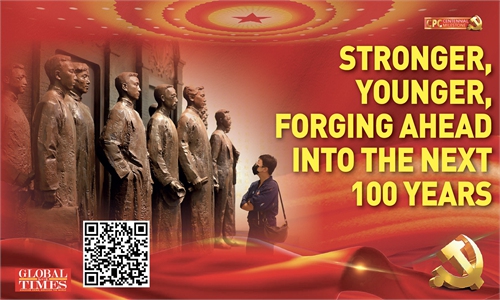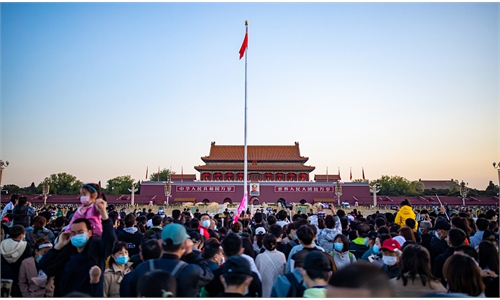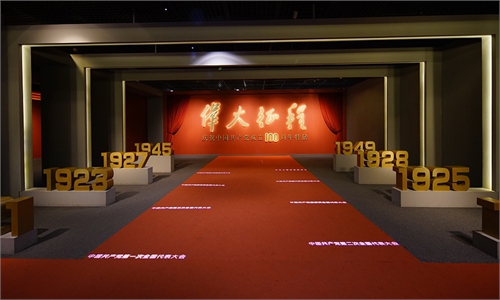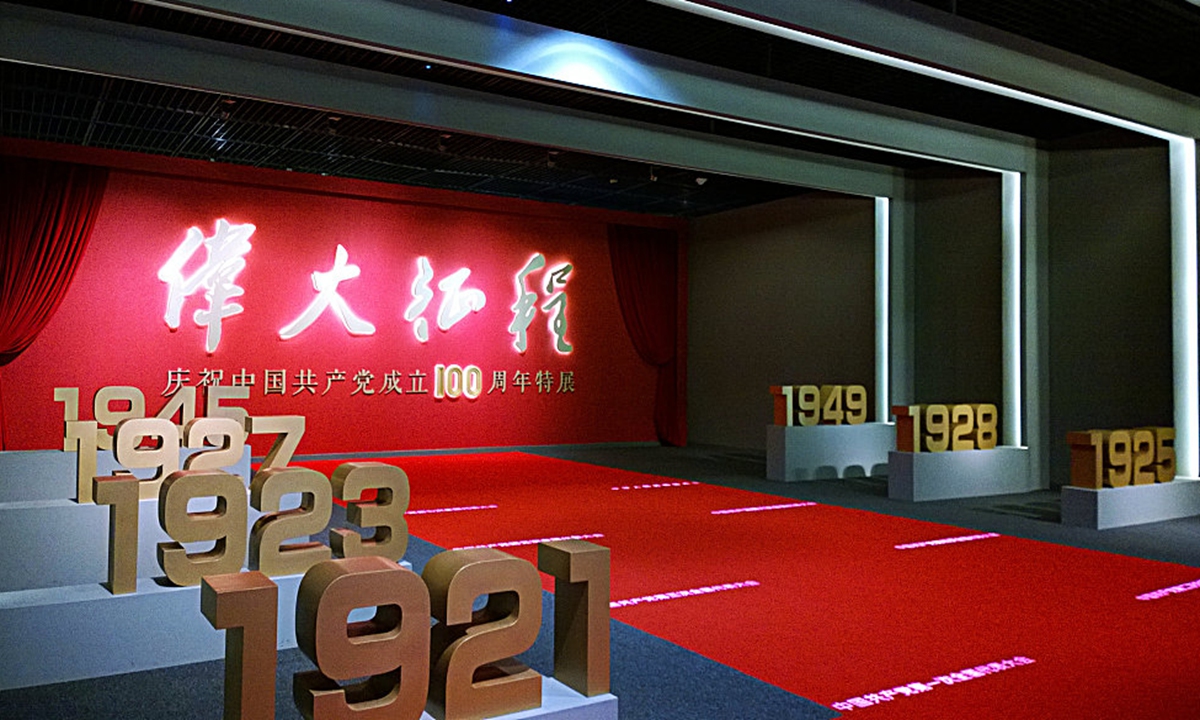
Photo: VCG
Editor's Note:This year marks the 100th anniversary of the founding of the Communist Party of China (CPC). How did the CPC lead China to overcome several wars and Western isolation and enable China to achieve fast development? Where does the CPC's self-motivation come from? Global Times (GT) reporter Wang Wenwen talked to Yuri Tavrovsky (Tavrovsky), head of the Expert Council of the Russian-Chinese Committee for Friendship, Peace and Development, over these issues.
GT: The CPC led China to overcome several wars and Western isolation and suppression. It has empowered China to achieve fast development since reform and opening-up. What do all these indicate for the CPC?
Tavrovsky: The CPC is the ruling party in China. It has earned this status during many trials and tribulations over the past 100 years. It has chosen the path of socialism, and after several experiments it improved to achieve fast development since launching reforms and opening-up. It offered the nation new perspectives of rejuvenation by putting forward the long-term program of the Chinese Dream. It continues to prove it is right to rule over the past few years uniting and leading the nation under harsh conditions of the natural disaster called COVID-19 and a man-made calamity called the Cold War.
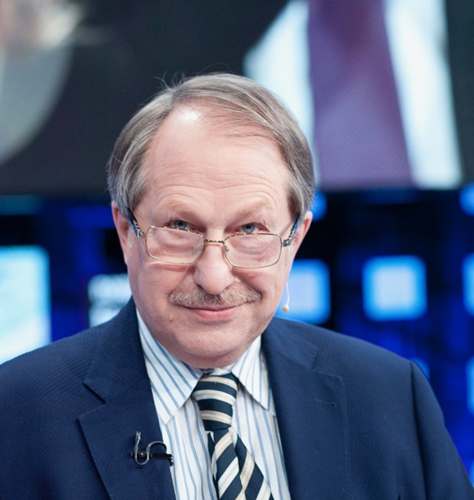
Yuri Tavrovsky Photo: Courtesy of Tavrovsky
GT: The CPC exercises democratic centralism. What are the differences between the CPC and Western parties which exercise the system of campaigning?
Tavrovsky: The CPC is a fighting party. It was born as a clandestine organization according to the strict discipline rules of Commintern and Russian Bolsheviks. It matured during two almost simultaneous wars - against the Japanese invasion and Kuomintang suppression. From the very start of being the ruling party, it had to resist Western aggression, isolation and suppression. Only strict disciplines of the ruling party saved China from impending catastrophe after two decades of chaos of Great Leap Forward (1958-61) and Cultural Revolution (1966-76).
At present, democratic centralism guarantees the CPC and China invulnerability against Western efforts to undermine peaceful accretion of China on the global arena. It is no wonder that both Trump and Biden administrations indicated the CPC with its mobilization potential and its socialist ideology as the main threat to the US national security.
The American establishment with its outdated political system cannot resist the forces of racial and social disintegration and protest; it has put the nation on the brink of a new civil war.
GT: The US-led West keeps attacking the CPC and has even sanctioned CPC members. However, this has boosted Chinese society's support for the CPC. Do you think the West's attacks of the CPC are a miscalculation?
Tavrovsky: Western attacks on the CPC are not a miscalculation but a natural reaction to the emergency of a new competitor. The American establishment and the ruling Democratic Party are under strong influence of the neoconservative ideology. The "neocons" hold key positions in the Biden administration, in the Pentagon and the security services, in mass media and Hollywood. Neoconservatism was born and developed in New York in the late [19]20s and [19]30s among leftist students leaning to the Trozkyist faction of Bolshevism. Since then they kept strong hatred toward the Soviet and any other variations of socialist ideas except their own. It explains their traditional antagonism toward the Soviet Union and present Russia.
Mixing their ideas with mainstream American Puritanism and Mormon dogmas, the "neocons" produced a new semi-religious ideology. The majority of Americans believe they are the "chosen people" and their country is "City upon the Hill" with a natural right to be the only power to rule the globe.
In foreign relations it explains American traditional exceptionalism and unilateralism, its anti-globalism and intolerance to any competition. In domestic affairs leftist traditions of "neocons" manifest itself in support of BLM and other populist movements, in socialist fantasies of Bernie Sanders and billions spent on social support. The neocons are afraid that socialism with Chinese characteristics will soon become the competitor of their ideology. Their anxiety is deeper than Trump and his Republican Party's fear of trade imbalances with China. Ideology was the main reason of the Cold War between the Soviet Union and America. Ideology will be the driving force of the cold war that America has started against China.
GT: Where does the CPC's self-motivation come from?
Tavrovsky: I think the CPC's self-motivation comes from the deep feelings of patriotism. It was the love of their motherland that had helped Communists "to build the Great Wall with our flesh and blood" during the fight against the Japanese invaders. It was patriotism that helped the Communists to fight, sometimes barehanded, against American tanks during the Korean War (1950-53). It is patriotism that had made possible formulation of the Chinese Dream, which is about the great rejuvenation of the Chinese nation. Patriotism is the essence of "socialism with Chinese characteristics." This patriotic formula and obvious practical results of the Chinese Dream allow the CPC to rule 1.4 billion Chinese in the 21st century with all the information technologies and artificial intelligence.
GT: China stresses that countries with different systems could coexist, while the US and some Western countries adopt various means to weaken China's strength ranging from a "color revolution" to military pressure. What risks will US suppression of China bring to the world?
Tavrovsky: The US and other Western countries don't want to coexist with "revisionist" nations like China and Russia because the US-led West is afraid that their current position of the rules-setters and rules-imposers in global finance and international relations will be replaced by China and Russia. The US, with its present neoconservative administration, puts ideology above profits and can risk a limited or even a big war to stop China as the most powerful competitor. These dangerous inclinations could and should be prevented by maximum coordination with China, Russia and other "revisionist" countries.
GT: Both China and Russia are under the pressure and suppression from the US-led West. What lessons could their experience fighting against such pressure offer to each other?
Tavrovsky: China and Russia have a century-long tradition of cooperation against common threats. Our national interests coincided in joint confrontation against the Japanese, Americans and other nations several times. Mutual consultations in times of aggression against either side are envisioned in the 2001 Treaty of Good-Neighborliness and Friendly Cooperation Between the People's Republic of China and the Russian Federation. Our countries actually were the "second front" to each other during World War II. By simultaneously putting pressure and suppression against Russia and China, America is pushing Moscow and Beijing to form a close relationship.
